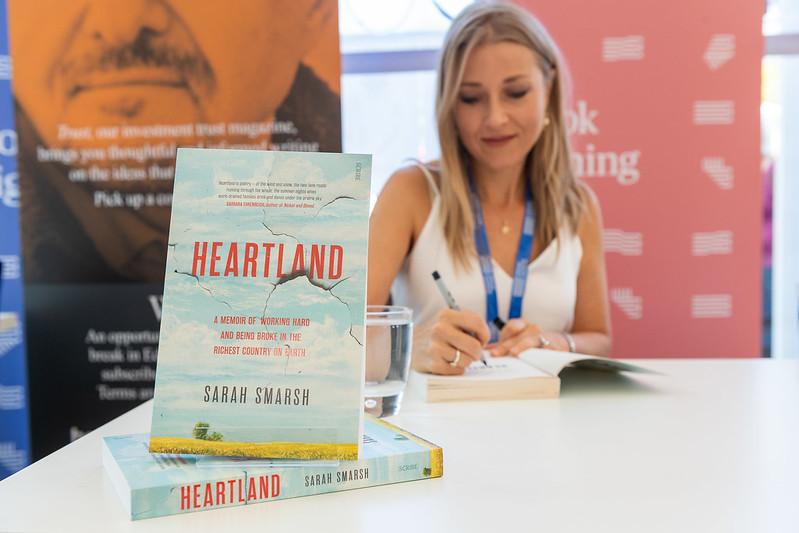On Sept. 24, Loyola students heard from Sarah Smarsh, author of “Heartland: A Memoir of Working Hard and Being Broke in the Richest Country on Earth.” Smarsh’s text touches upon a variety of issues, such as the intersection of race and poverty, class, and feminism. Here are just a few of the questions that were answered during Smarsh’s virtual presentation.
Why did you decide to name your book “Heartland,” and what is the significance of its subtitle?
“The term ‘heartland’ has both literary and political components,” Smarsh said. “When they saw the term, I wanted people to question what it meant to them, because certain terms such as ‘heartland’ are reduced through simplification and condensation. The term is rightly refuted by people living in urban or coastal areas. Essentially, I wanted to complicate and challenge the stereotypes mixed into whatever [people] conjure in the term ‘heartland.’”
As for choosing the subtitle, Smarsh said that she knew the United States has a high gross domestic product (GDP), a global measure that gauges the prosperity of nations based on their economic growth, per capita. However, she wanted readers to realize that there is more to America’s story than its GDP.
“[There is] a great poverty of spirit about a place that lets children go hungry, public schools go underfunded, and where there are 140 million people working hard yet [unable to escape] poverty,” she said.
Smarsh explained that this “poverty of spirit” is only exacerbated by the coronavirus pandemic. Touching on access to healthcare, the author shared a personal story from her childhood.
“In an earlier chapter of my book, I talked about how I was born into a home with a teen mom in poverty,” Smarsh said. “It was difficult for us to access health care, and my dad almost died after he came into contact with toxic poison in his job, which was with a billion dollar corporation. That’s to do with class. People who were not struggling before the pandemic hit forget that the United States was already a weak country in terms of our lack of a universal health care system.”
While we celebrate the 19th Amendment this year, yet simultaneously mourn Justice Ruth Bader Ginsburg’s passing, what is the future of feminism for this election and beyond?
“One of the great challenges we face is that due to our extreme political polarization and our extreme media polarization, we don’t have a common text as an American people,” Smarsh said. “Some people who resist the term feminist might actually be feminists themselves, but they don’t understand what the term means and therefore resist it [as a label].”
Smarsh also highlighted that individual understandings of American society can change with time and new information, and that such growth should not be looked down upon.
“[We must] be sensitive to how language can become exclusive in ways that are damaging to our national discourse,” Smarsh said. “Don’t look down upon women who resist the term feminist. I would have been weary of the term when I was a teenager living in Kansas.”
How does Heartland connect with the theme of civic engagement, and how can Loyola students connect their beliefs to civic engagement?
“Heartland attempts to merge a story about my family with a story about this country. My intent was not to say that my family is more important than others,” Smarsh said. “Instead, I wanted to show how we are formed by the context and environment into which we are born. In this highly individualistic society, we often forget that we are shaped and carved by culture, law, history, and vast external forces against which we have little power.”
According to Smarsh, Loyola students should “ think about how to make a more equitable, fair, and just society, by [not only voting] but thinking about how your particular gifts lend yourself to the greater good.”
Smarsh urged her audience to “be of civic utility while finding things that are personally fulfilling.”
What advice do you have for people who are either just beginning their journey as writers, or are feeling stuck in their writing?
“You must believe that you deserve to be heard,” Smarsh said. “We live in a culture that does not value all of the strengths, such as sensitivity, quiet, and solitude, that it takes to be a writer.”
Be sure to keep a lookout for more recaps of great speakers as the online semester at Loyola continues.
Featured Image courtesy of Edinburgh International Book Festival and Roberto Ricciuti, via Flickr Creative Commons


















































































































